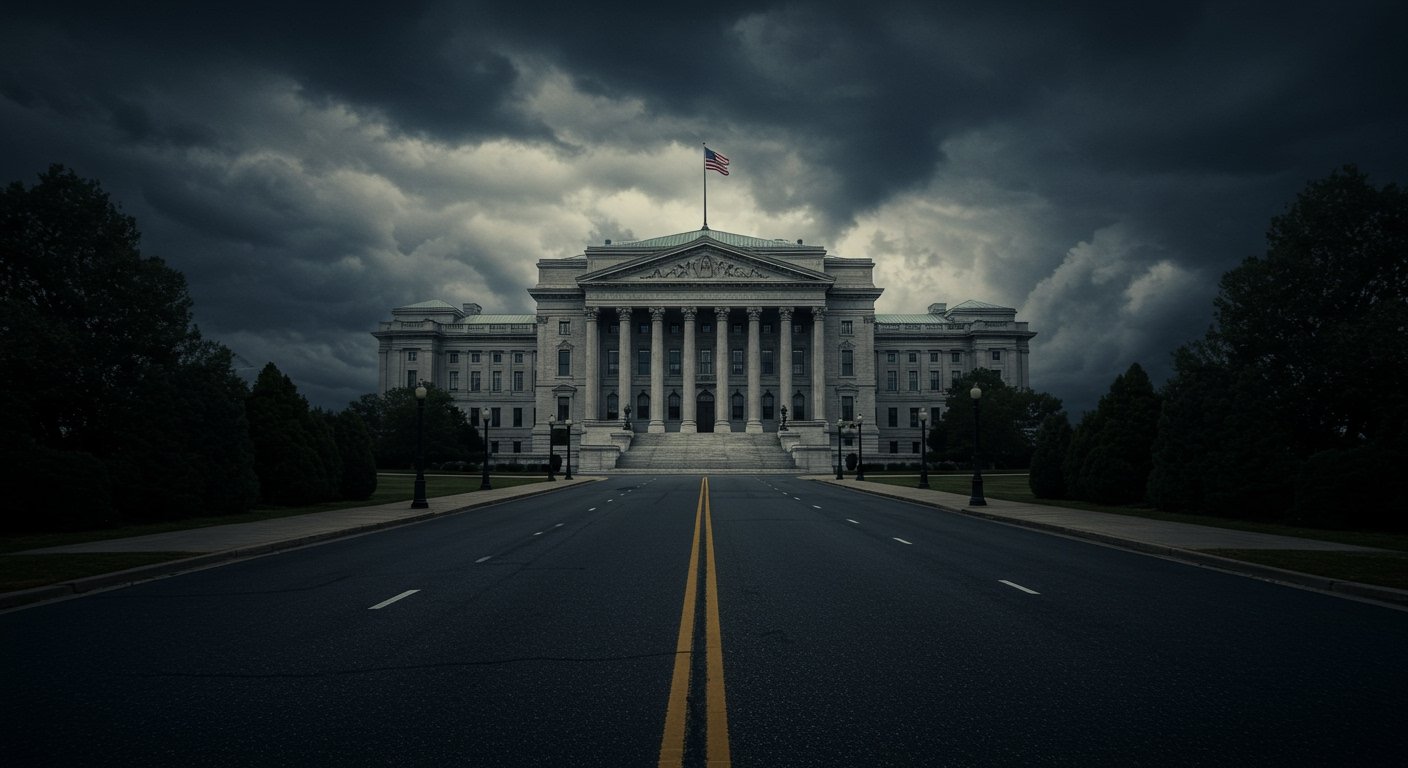President Donald Trump has escalated his “law and order” campaign, directly threatening to deploy National Guard troops to Baltimore and engaging in a heated exchange with Maryland Governor Wes Moore. The move is part of a broader pattern by the administration to target Democratic-led cities, raising significant legal and constitutional questions and drawing sharp criticism from state and local leaders.
The latest development emerged when Trump, via social media, characterized Baltimore as “out of control” and “crime ridden.” This statement came in response to an invitation from Governor Moore for the President to join him for a public safety walk in the city. Trump retorted that Moore needed to “clean up this Crime disaster” before he would consider such a visit. He further warned that if Moore required assistance in ensuring Baltimore’s safety, he would “send in the ‘troops,'” drawing parallels to deployments in Washington, D.C., and Los Angeles. Adding to the political friction, Trump also suggested reconsidering federal funding for the rebuilding of the Francis Scott Key Bridge, a critical Baltimore infrastructure project.
Governor Moore, a U.S. Army veteran, strongly pushed back against Trump’s rhetoric and proposed actions. He countered Trump’s claims by highlighting the significant progress in reducing crime in Baltimore, stating that the city is experiencing its lowest homicide rate in 50 years. Moore has been a vocal critic of Trump’s federal interventions, calling the deployment of troops to Washington, D.C., unconstitutional and “deeply dangerous.” He has vowed not to authorize the use of the Maryland National Guard for missions he deems not “mission-critical or mission aligned,” emphasizing that such deployments risk turning citizen soldiers into political tools.
Baltimore Mayor Brandon Scott also rejected Trump’s characterization of the city, stating that Baltimore is experiencing its safest period in over 50 years, with homicides down significantly. Mayor Scott welcomed increased federal law enforcement resources and grants but explicitly rejected the idea of soldiers patrolling city streets, advocating instead for community-based solutions and the reinstatement of federal public safety grants that were previously cut.
The President’s assertions about Baltimore’s crime rates have been met with data suggesting otherwise. While crime remains a serious issue, reports indicate that violent crime in Baltimore has seen declines, with homicides down considerably from previous years. This trend mirrors that in Washington, D.C., where Trump has also claimed rampant crime, despite official data indicating a decrease in violent crime. This discrepancy fuels accusations that the President’s actions are politically motivated and designed to manufacture a crisis rather than address a genuine, escalating threat.
Trump’s broader strategy includes potential National Guard deployments to other major cities, notably Chicago and New York. The Pentagon has reportedly been planning military deployments in Chicago, prompting similar pushback from Illinois Governor JB Pritzker and Chicago Mayor Brandon Johnson, who have condemned the potential overreach.
The legal and constitutional implications of such deployments are significant. The National Guard typically operates under state governors’ command. However, federal law, including the Insurrection Act and provisions in Title 10 of the U.S. Code, grants the President authority to federalize the Guard under specific circumstances, such as suppressing rebellion or enforcing federal law. The use of federalized troops for domestic law enforcement is further regulated by the Posse Comitatus Act, which generally prohibits such actions unless specifically authorized by Congress.
The deployments have already spurred legal challenges. The American Civil Liberties Union (ACLU) and allied groups have filed lawsuits in West Virginia, arguing that the state’s governor exceeded his constitutional and statutory authority by sending National Guard members to Washington, D.C. The ACLU contends that such deployments, particularly when used as “political props in a manufactured crisis,” violate established legal boundaries and could endanger civil liberties. Legal experts note that while the President has broad authority, the specific circumstances and justifications for deploying military forces domestically are subject to intense legal scrutiny and are often contested in court.
As the nation grapples with these developments, the debate centers on the appropriate use of federal power, the balance between national security and individual rights, and the effectiveness of military force versus community-led initiatives in addressing crime. The ongoing dispute highlights the deep political divisions and the complex legal framework surrounding the deployment of American military personnel on home soil.











